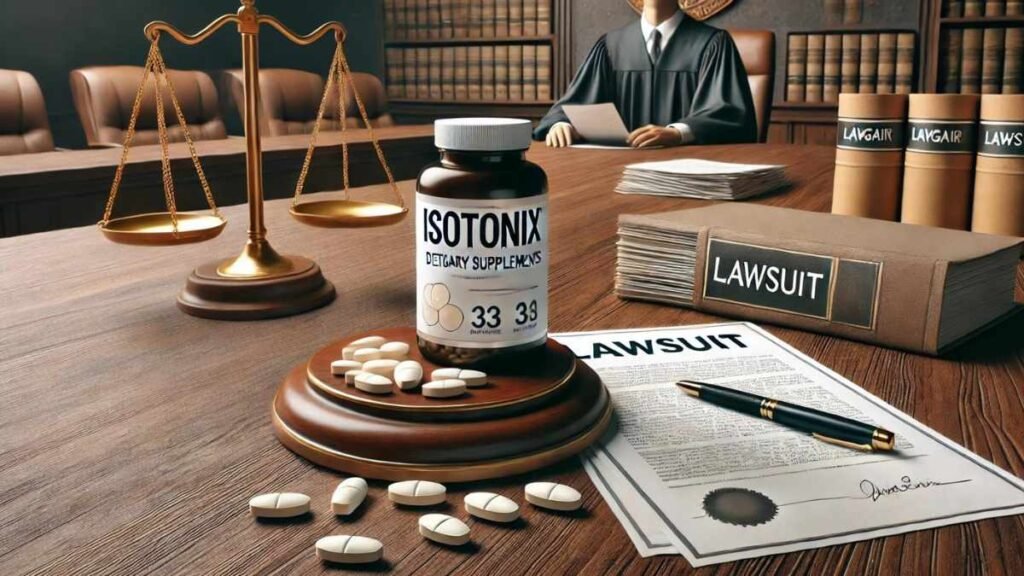The “Isotonix Lawsuit” has gained significant attention in recent months, centering on allegations that question the integrity of the brand’s marketing practices and the safety of its health supplements. At the heart of the controversy are claims that Isotonix products may not deliver the health benefits they promise, potentially misleading consumers. This legal battle brings to light the importance of transparency in the supplement industry and raises concerns over the company’s future market presence.
Introduction to Isotonix and Its Lawsuit
Isotonix, a popular brand in the health and wellness industry, has built its reputation on a range of dietary supplements that claim to offer superior absorption and benefits. However, the recent lawsuit has raised serious questions about the authenticity of these claims. The lawsuit alleges that Isotonix has engaged in deceptive advertising, misleading consumers about the effectiveness and safety of its products. This case not only impacts Isotonix but also reflects broader issues within the supplement industry regarding consumer trust and regulatory oversight.
Key Allegations Against Isotonix
The lawsuit against Isotonix revolves around several key allegations. The primary complaint is that the company’s marketing practices may have exaggerated the benefits of its products, particularly regarding their bioavailability and absorption rates. Furthermore, there are concerns about the potential health risks associated with long-term consumption of certain ingredients used in Isotonix supplements. These allegations suggest a possible violation of consumer protection laws, prompting legal action to hold the company accountable for any misleading information.
Understanding the Legal Proceedings
The legal proceedings have unfolded with significant scrutiny from both the public and the media. The plaintiffs argue that Isotonix’s claims of enhanced absorption and efficacy lack sufficient scientific evidence. They assert that consumers were misled by marketing materials that promised results that may not be realistically achievable. The defense, on the other hand, maintains that all marketing claims are backed by rigorous research and that the lawsuit is an attempt to undermine a reputable brand. As the case progresses, it will be crucial to examine the evidence presented by both sides to understand the validity of these claims.
Implications for the Supplement Industry
This lawsuit highlights a growing trend of consumer skepticism towards dietary supplements. With increasing awareness of health and wellness, consumers are becoming more discerning about the products they use, demanding transparency and proof of efficacy. If the court rules against Isotonix, it could set a precedent for stricter regulations and oversight in the supplement industry. Such a ruling might encourage other companies to be more transparent about their product claims and foster a market that prioritizes consumer safety and accurate information.
Potential Impact on Isotonix’s Reputation and Business
A legal battle of this magnitude could have far-reaching consequences for Isotonix. Should the company lose the case, it may face significant financial penalties, potential recalls of its products, and a damaged reputation that could affect consumer trust. Conversely, if Isotonix wins, it might reaffirm its position as a leading brand in the industry, although the controversy may still leave a lasting impact on consumer perception. Either way, the outcome will likely influence how companies within the health and wellness sector approach their marketing strategies.
The Role of Consumer Advocacy in the Lawsuit
Consumer advocacy groups have played a pivotal role in bringing the Isotonix lawsuit to public attention. These groups argue that consumers have the right to know exactly what they are putting into their bodies and whether the claimed benefits are supported by scientific evidence. They push for more stringent regulations in the supplement industry to protect consumers from potentially misleading or false advertising. The lawsuit has sparked a conversation about the need for transparency and accountability, not just for Isotonix but for the entire supplement market.
Future Outlook for Isotonix
Regardless of the lawsuit’s outcome, Isotonix will need to reassess its marketing practices and consider strategies to rebuild consumer trust. This may involve increased transparency, such as providing detailed ingredient lists and publishing clinical studies that back their claims. Moreover, the company might need to engage in proactive communication strategies to address consumer concerns and demonstrate their commitment to quality and safety.
Conclusion
For consumers, the “Isotonix Lawsuit” serves as a reminder to remain vigilant about the products they choose to use. While dietary supplements can offer health benefits, it’s essential to research products thoroughly, look for scientific backing, and consult healthcare professionals. The outcome of this lawsuit could bring about significant changes in how supplements are marketed, pushing the industry toward greater honesty and integrity.
For More Visit, MirrorMagazine.co.uk


